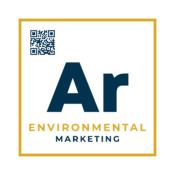

Environmental Literacy Courses Empowered a Fortune 500 Company to Eliminate Single-Use Plastic and Achieve ESG Goals
01. The challenges
We were asked to create a tailored Environmental Literacy Course for the largest property, casualty, and auto insurance provider in the United States to support developing the Fortune 500 company-wide initiative to eliminate single-use plastic bottles. The insurance provider lacked the internal expertise to create an effective training program. Initiatives that had been attempted previously lacked buy-in and knowledgeable team players. The new goal would require training for maximum engagement and success of the new measure.
Corporate sustainability initiatives have become an important tool for companies that are strategically future-proofing their brand. Effectively executing sustainability initiatives and achieving ESG goals requires the participation and background knowledge of all staff to contribute their best efforts.
Employees who are educated on environmental issues and solutions take their special knowledge and incorporate it into their scope of work with a multidisciplinary approach to solutions. In order to develop these skills, the major insurance company enlisted our team’s expertise. Here’s how it went.



02.The solutions
Research
Our team conducted a brief survey to assess staff's understanding and varying levels of knowledge, identifying shared values across the organization. These insights were instrumental in developing the right educational programs to meet the company’s goals.
Branding and Messaging
Our Environmental Literacy Course for employees reflected the brand’s approachable, supportive identity by emphasizing relatable stories and actionable insights. The messaging was thoughtfully designed to resonate with staff, using a consistent visual and tonal style that inspired engagement in the program.
Strategy
Recognizing that different roles require varying levels of understanding and impact, we created two tailored courses. One was an Environmental Literacy Course for the C-Suite, focusing on high-level decision-making, while the other targeted employees with more day-to-day actionable insights.
Execution
Our team of creatives, environmental scientists, educators, and storytellers collaborated to create an engaging training course experience for staff. The program included live workshops on campus and self-paced e-courses, which offered a certificate upon completion. Each format concluded with an exit quiz to assess participants' understanding and how they would apply their learning to their roles and the initiative.
03.The results
Our team provided the technical, environmental science, research, environmental marketing, scripting, and video production necessary to create the effective training tool needed to support this company-wide initiative.
The Environmental Literacy Courses transformed how employees and C-suite engaged with the initiative and was a great success. Compared to previous initiatives at the company that commenced without company-wide education, the plastic bottle elimination saw a spike in employee participation, and accountability skyrocketed from co-workers as more people understood the significance of the initiative and how to take action. Some of the key outcomes shared included the following.
- Achieved significant cost savings by replacing single-use items with reusable and recyclable alternatives.
- Improved employee morale and a stronger sense of accountability for sustainability efforts.
- Strengthened alignment with corporate ESG goals, boosting investor confidence and public perception.
- Streamlined purchasing and waste management processes.
- Increased public trust and goodwill through demonstrated leadership on sustainability.
- Proactive compliance with emerging regulations on single-use plastics.
- Provided valuable metrics from the courses that offered actionable feedback for refining future sustainability initiatives.
04.Opportunities
This initiative showed how education-driven strategies could bridge the gap between corporate goals and employee engagement. The success of these courses reinforced the value of environmental literacy in driving measurable results, from financial savings to improved reputation and operational efficiency. Further opportunities included the following.
- Improved waste reduction metrics for team initiatives.
- More engaged employees and a C-suite team.
- Reduced cost of waste management with national corporate initiative.
- Created a community.
- Encouraged employees to teach and involve their families in the initiative.